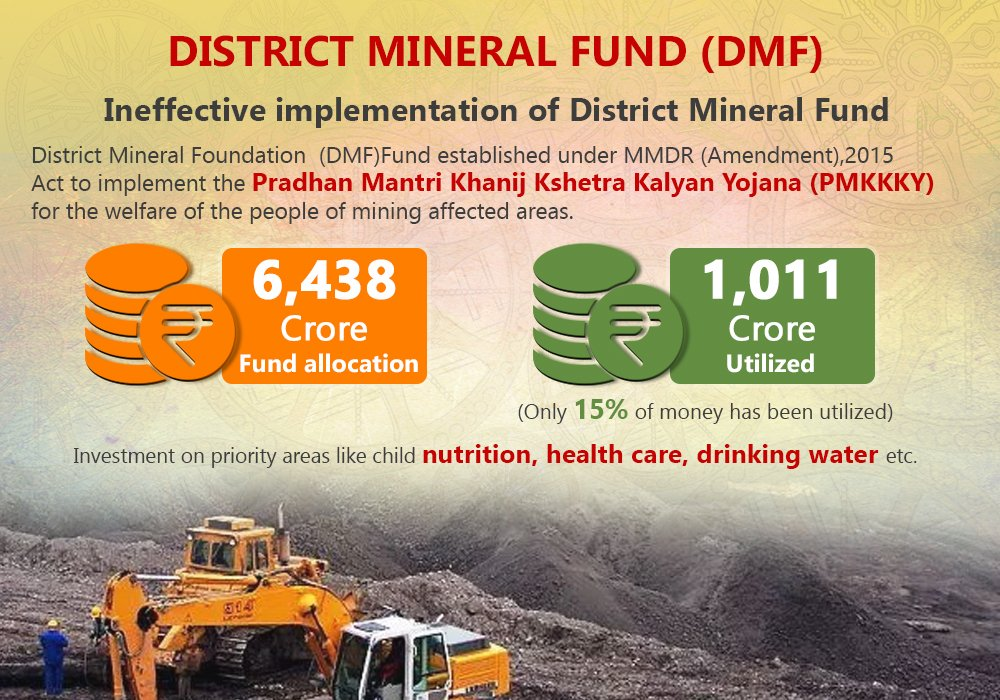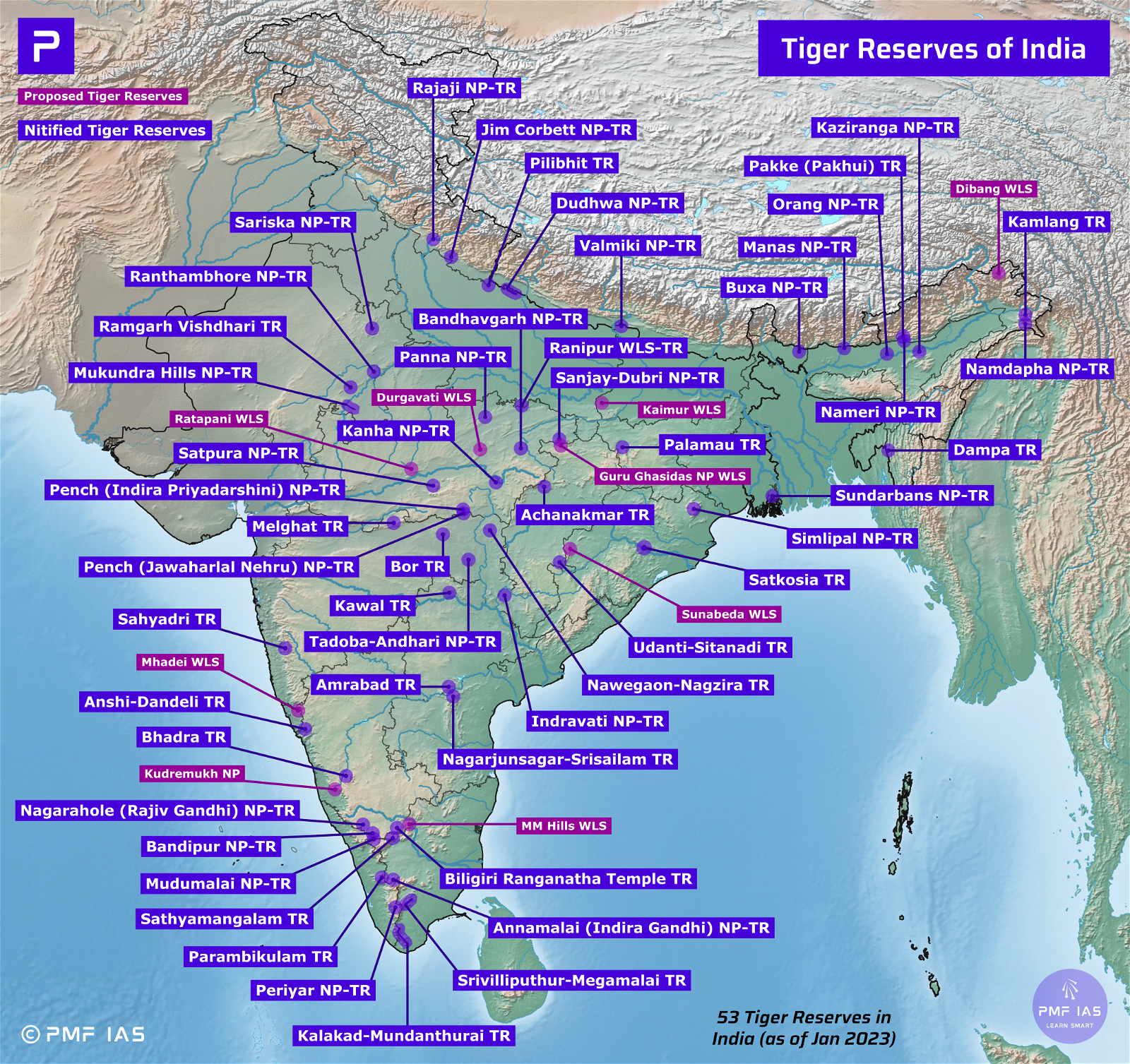
Forest Conservation Act, 1980 & Forest (Conservation) Amendment Bill, 2023
Subscribe to Never Miss an Important Update! Assured Discounts on New Products!
Must Join PMF IAS Telegram Channel & PMF IAS History Telegram Channel
Forest (Conservation) Amendment Bill, 2023
- Context (IE | IE | TH | DTE | TH | TH): The Lok Sabha has passed the Forest Conservation (Amendment) Bill, 2003, which amends the Forest Conservation Act, 1980 (FCA, 1980).
Forest Conservation Act, 1980 (FCA, 1980)
- FCA, 1980 was enacted to protect India’s forests and regulate forest resource extraction by industries and forest-dwelling communities.
- Features of the FCA, 1980
Restriction on Dereservation
- The Act restricts the states and other authorities from allowing dereservation (i.e., use of forest land for non-forest purposes) without permission from the central government.
|
Appeal to National Green Tribunal
- The Act provided that any aggrieved person may file an appeal to the National Green Tribunal against the decision of the State Government or any authority.
Constitution of Advisory Committee
- The Act empowered the Central Government to constitute a committee to advise the Government regarding forest conservation.
Penalties
- The Act levies penalties in case of violations of the provisions of FCA.
Power to Make Rules
- The Act empowers the Central Government to make rules for carrying out the provisions of this Act.
Forest Conservation (Amendment) Bill, 2003
Objectives of the 2023 Bill
- To broaden the horizons of the Act to boost India’s forest cover to 33% and to create a carbon sink of additional 2.5-3.0 billion tons of CO2 by 2030 as part of its Pari Agreement commitments.
- To balance industrial development and the conservation of forests.
- To clarify the applicability of the Forest (Conservation) Act, 1980, on various lands.
Key Provisions of the Forest (Conservation) Amendment Bill, 2023
- The Bill renames the Forest (Conservation) Act, 1980, to Van (Sanrakshan Evam Samvardhan) Adhiniyam or Forest (Conservation and Augmentation) Act.
- The new name reflects a new focus on afforestation and reforestation activities.
Restrictions on Activities in the Forest
FCA, 1980
- FCA, 1980 specifies activities that will be excluded from restriction on dereservation.
- These activities include conservation, forest development, wildlife-related works, etc.
- GoI may exclude any survey (exploration, seismic survey) from restrictions on dereservation.
2023 Bill
- The 2023 Bill adds more activities to the restriction on dereservation list, such as:
- zoos and safaris under the Wild Life (Protection) Act, 1972 owned by the government or any authority, in forest areas other than protected areas,
- eco-tourism facilities,
- silvicultural operations (enhancing forest growth), and
- any other purpose specified by the central government.
Land under the Purview of FCA
- The 2023 Bill provides that two types of land will be under the purview of the FCA:
- Land notified as a forest under the Indian Forest Act, 1927 or under any other law, or
- Land not covered in the first category but notified as a forest on or after 25th October 1980 in a government record.
|
Criticism
Limits Scope of the FCA
- SC in T.N. Godavarman vs. Union of India held that the provisions of the FCA will apply beyond ‘notified forests’ to all areas ‘recorded’ as forest in any government record.
- But the 2023 Bill proposes that the FCA will apply ONLY to those lands which are recorded as forest on or after 25th October 1980, thus restricting the scope of the Godavarman judgement.
- This is a significant exclusion because it will potentially exclude 28% of India’s forests outside Recorded Forest Areas from the purview of the FCA.
- The lands excluded from the purview of FCA will be easily diverted for commercial use.
Land Exempted from the Purview of FCA
The 2023 Bill exempts certain types of land from the provisions of the FCA. They include:
- Forest land along a rail line or a public road maintained by the government providing access to a habitation, or to a rail, and roadside amenity up to 0.10 hectares.
- Forest land situated within 100 km along the international borders proposed to be used for construction of strategic projects of national importance or security.
- Forest land up to 10 ha, proposed to be used for construction of security-related infrastructure.
- Forest land proposed for construction of defence and paramilitary projects, or public utility projects as specified by the GoI (not exceeding 5 hectares in left-wing extremism affected area).
- Land changed from forest use to non-forest use on or before 12th December 1996 by any authority authorised by a state/UT.
Criticism
Endangers Ecologically Sensitive Bio-geographic Regions and Biodiversity Hotspots
- This exemption provision of the Bill is problematic as forests in the Himalayan, Trans-Himalayan and North Eastern regions, which are rich with endemic biodiversity will be exempted.
- Clearing of these forests without any assessment and mitigation plan will lead to biodiversity loss and increase the vulnerability of the ecologically and geologically sensitive areas.
- Incentiving Private Agro-Forestry and Tree Plantation Activities
FCA, 1980
- It allowed private plantations or reforested land to be retrospectively earmarked as forest.
- This provision disincentivised the private parties.
2023 Bill
- 2023 Bill incentivises the private parties by allowing the divertion of private forests for commercial or other uses, without the need for acquiring forest clearance.
Criticism: Incentivise Afforestation for Commercial Ends
- The Bill allows the diversion of private forests for afforestation activities. This may not help create a permanent carbon stock as they can simply be used as carbon credits.
|
Assigning of Land through a Lease or Otherwise
FCA, 1980
- State government or any authority requires prior approval of the GoI for assigning forest land to any organisation (private person, authority, corporation) not owned by the government.
2023 Bill
- The 2023 Bill provides that state government or any authority do this assigning to any organisation subject to terms and conditions prescribed by the GoI.
-
Power to Issue Directions
- The 2023 Bill adds that the GoI may issue directions for implementing the FCA to any other authority/organisation under or recognised by the centre, state, or UT.
Other Criticisms of the 2023 Bill
Diluted the Power of FCA
- The 203 Bill used terms like ‘proposed’, ‘ecotourism facilities’, and ‘any other purposes’ which are too vague and can be exploited or misused for commercial purposes.
Biodiversity Loss
- Though the 2023 Bill proposes to ease the land transfer for compensatory afforestation, it will not serve the ecological purpose until fundamental changes are made.
- Generally, monoculture is practiced in compensatory afforestation, which leads to biodiversity loss.
Violation of Constitutional Rights
- The provision of exemptions without the consultation of local individuals violates the Forest Rights Act, 2006 (FRA 2006), the Panchayat Act, and constitutional provisions for the STs.
- The requirement of consent for diverting forest lands gives legal recognition to the rights of the forest dwellers, which is recognised by FRA 2006.
Constitutional Provisions for Conservation of ForestsFundamental RightsArticle 21(Right to Life)
Directive Principles of State PolicyArticle 48A (Protection and improvement of environment and safeguarding of forests and wildlife)
Fundamental DutiesArticle 51A(g)
|




![PMF IAS Environment for UPSC 2022-23 [paperback] PMF IAS [Nov 30, 2021]…](https://pmfias.b-cdn.net/wp-content/uploads/2024/04/pmfiasenvironmentforupsc2022-23paperbackpmfiasnov302021.jpg)










